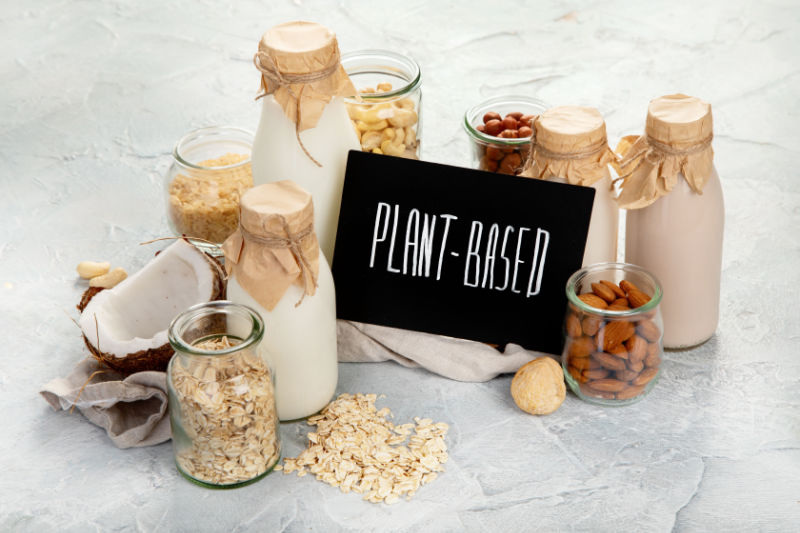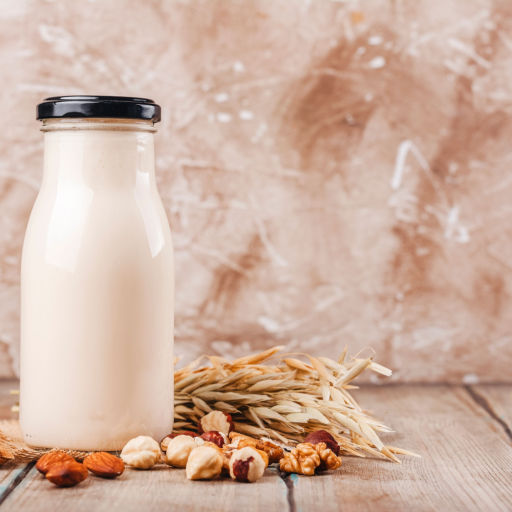As we look forward to observing World Milk Day on June 1st to recognize the importance of milk as a global food, it is evident that milk plays a crucial role in promoting healthy lifestyles. Beyond its creamy taste, milk is a nutritional powerhouse with many benefits. From building strong bones to supporting a healthy immune system, milk offers many advantages that can significantly enhance your overall well-being.
What you need to know:
- Types of milk products
- Nutritional value of milk per 100ml
- World Milk Day: Celebrating a beverage packed with nutrients
- The health benefits of milk
- What you need to know about the risks of consuming milk
Types of milk products
 Regularly consuming an adequate amount of milk ensures a high intake of calcium, which supports bone density. Milk is also rich in protein, which is vital in building and repairing tissues and producing enzymes and hormones. However, the nutritious value of your milk also depends on its type –
Regularly consuming an adequate amount of milk ensures a high intake of calcium, which supports bone density. Milk is also rich in protein, which is vital in building and repairing tissues and producing enzymes and hormones. However, the nutritious value of your milk also depends on its type –
- Pasteurized milk: This type of milk is high in protein and low in fat, making it a healthy drink.
- Flavored milk: Flavoured milk in cans and packaged products can come with added sugars and additives.
- Organic or lactose-free cow milk: Today’s cow milk types are diverse. You can opt for lactose-free milk, milk full of omega 3 or completely organic. After that, it is up to you.
Nutritional value of milk per 100ml
Even though the nutritional benefits of milk can differ because of its type, let us understand what nutrients can 100 ml of milk provide you with:
| Nutrient | Values |
| Calories | 65 Kcal |
| Protein | 3.5 grams |
| Fat | 3.7 grams |
| Calcium | 124 mg |
| Sugars | 4.7 grams |
| Phosphorus | 99 mg |
| Potassium | 162 mg |
World Milk Day: Celebrating a beverage packed with nutrients
World Milk Day is celebrated yearly to honor milk’s nutritional and agricultural significance. It highlights milk’s vital role in human nutrition and development. This day raises global awareness about the importance of dairy farming and its impact on livelihoods and economies worldwide. Through various events and campaigns, it promotes milk as a nutritious food source and emphasizes the need to ensure access to quality dairy products for all.
The history and significance of World Milk Day
The United Nations Food and Agriculture institution established World Milk Day on June 1st, 2001, to promote milk as a global food and commemorate the over 240 million workers involved in this industry.
The 5 health benefits of milk
Here are some of the best health benefits of consuming milk daily:
Rich in nutrients
Milk is a nutritional powerhouse due to its richness in essential nutrients. For example, it is an excellent source of calcium, a mineral crucial for strong bones and teeth. It’s also packed with vitamins, which improve bodily functions like growth and development and maintain the immune system.
Good source of protein
Milk is considered to be one of the most protein-rich foods. It supplies all the essential amino acids our bodies require. These amino acids help in tissue repair, muscle development, and hormone production.
Helps bone health
Milk is renowned for being calcium-rich. Calcium, along with phosphorus present in milk, helps in building strong bones. Therefore, regular milk consumption helps prevent conditions like osteoporosis and reduces the risk of fractures.
Helps in building muscles
The protein content in milk supports muscle growth and repair, making it an excellent choice for post-workout recovery.
Good for heart health
A healthy heart is fundamental to a healthy body, and milk can contribute to maintaining cardiovascular health. In addition, the potassium content in milk helps regulate blood pressure, reducing the risk of hypertension.
What you need to know about the risks of consuming milk?
 As we observed World Milk Day, it’s crucial to acknowledge that while milk has several health benefits, it may not suit everyone.
As we observed World Milk Day, it’s crucial to acknowledge that while milk has several health benefits, it may not suit everyone.
Let’s understand the two significant risks of consuming milk: lactose intolerance and casein sensitivity.
Lactose intolerance
Lactose intolerance is a prevalent condition that affects individuals worldwide. It occurs when the body is enzyme deficient, failing to break down lactose, the natural sugar in milk. As a result, undigested milk can lead to bloating, gas, diarrhea, and abdominal pain.
Casein sensitivity

Some individuals may experience sensitivity or allergies to the proteins found in milk, such as casein. Casein sensitivity can lead to digestive discomfort, skin rashes, respiratory issues, or even anaphylaxis in extreme cases.
When considering milk’s health benefits, it’s important to note that individual preferences and tolerances may vary. However, milk is a versatile and nutritious beverage with many health benefits.
Stay tuned to the Activ Living Community. Keep up to date with the latest health tips and trends through expert videos, podcasts, articles, and much more on nutrition, fitness, mindfulness, and lifestyle conditions like Asthma, Blood Pressure, Cholesterol, and Diabetes. Activ Living ke saath sahi sehat ki shuruaat ABHIkaro.
You may also be interested in the following blogs:
- Vegan Milk Replacements
- Gut Feeling Good: Why Probiotic Drinks Are The Key To A Happy Digestive System?
Popular Searches
How to lower blood pressure | Fruits good for liver | Unhealthy foods | Ragi Benefits | Basal Metabolic Rate | Acupressure points for High Blood Pressure | Ayurvedic medicine for blood pressure | How to control cholesterol at home | Homeopathy for Asthma | Biological Age | Home remedies for TB | Natural beta blockers | Negative effects of internet | Types of walking | Blood pressure calculator | Blood sugar calculator | BMI Calculator





 1800-270-7000
1800-270-7000








